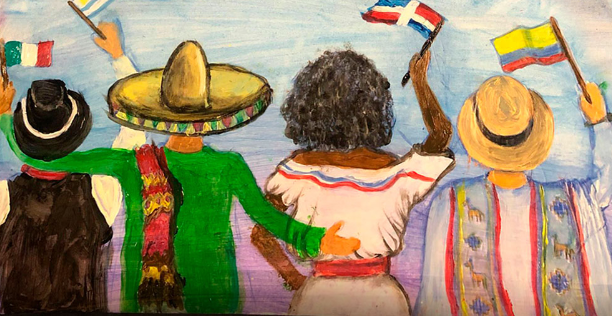Hispanic Heritage Month, celebrated from September 15 to October 15, is a period of time to recognize and honor the cultural contributions of Hispanic and Latino Americans to the United States. The celebration begins mid September to coincide with the independence anniversaries of several Latin American countries like Costa Rica, El Salvador, Guatemala, Honduras, and Nicaragua. Additionally, Mexico and Chile celebrate their independence days on September 16 and September 18. This month is important because it acknowledges the diverse cultures, histories, and achievements of Hispanic communities, fostering a greater understanding and appreciation of their impact on society. Embracing Hispanic Heritage Month involves participating in cultural events, learning about Hispanic history, and supporting Hispanic-owned businesses, which helps to promote inclusivity and respect for cultural diversity. It means celebrating through music, dance, art, and cuisine that are integral to Hispanic culture. Schools, communities, and organizations often host festivals, parades, and exhibitions that showcase traditional and contemporary Hispanic art forms. By actively participating in these events and educating ourselves about the diverse experiences and contributions of Hispanic individuals, we can build a more inclusive society that values and respects cultural diversity.
Hispanic Heritage Month also serves as an opportunity to reflect on the challenges and obstacles faced by Hispanic and Latino communities throughout history. From the early explorers and settlers who shaped the early Americas to the leaders in various fields, Hispanic Americans have played a crucial role in the nation’s development. The month encourages educational involvement that highlights significant figures and events, creating a deeper understanding of Hispanic heritage.
